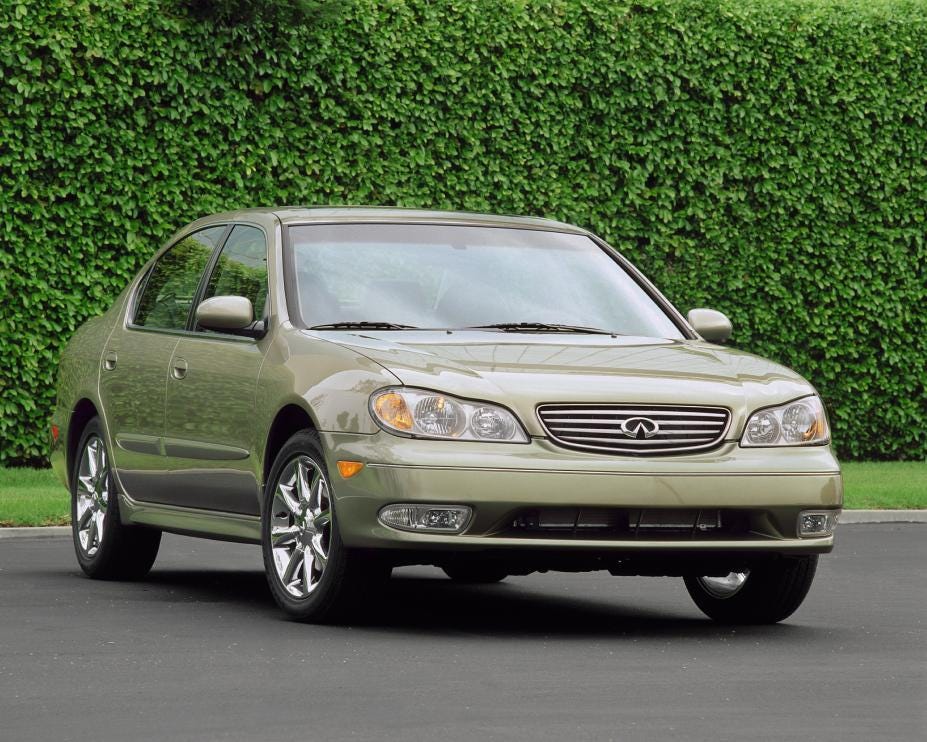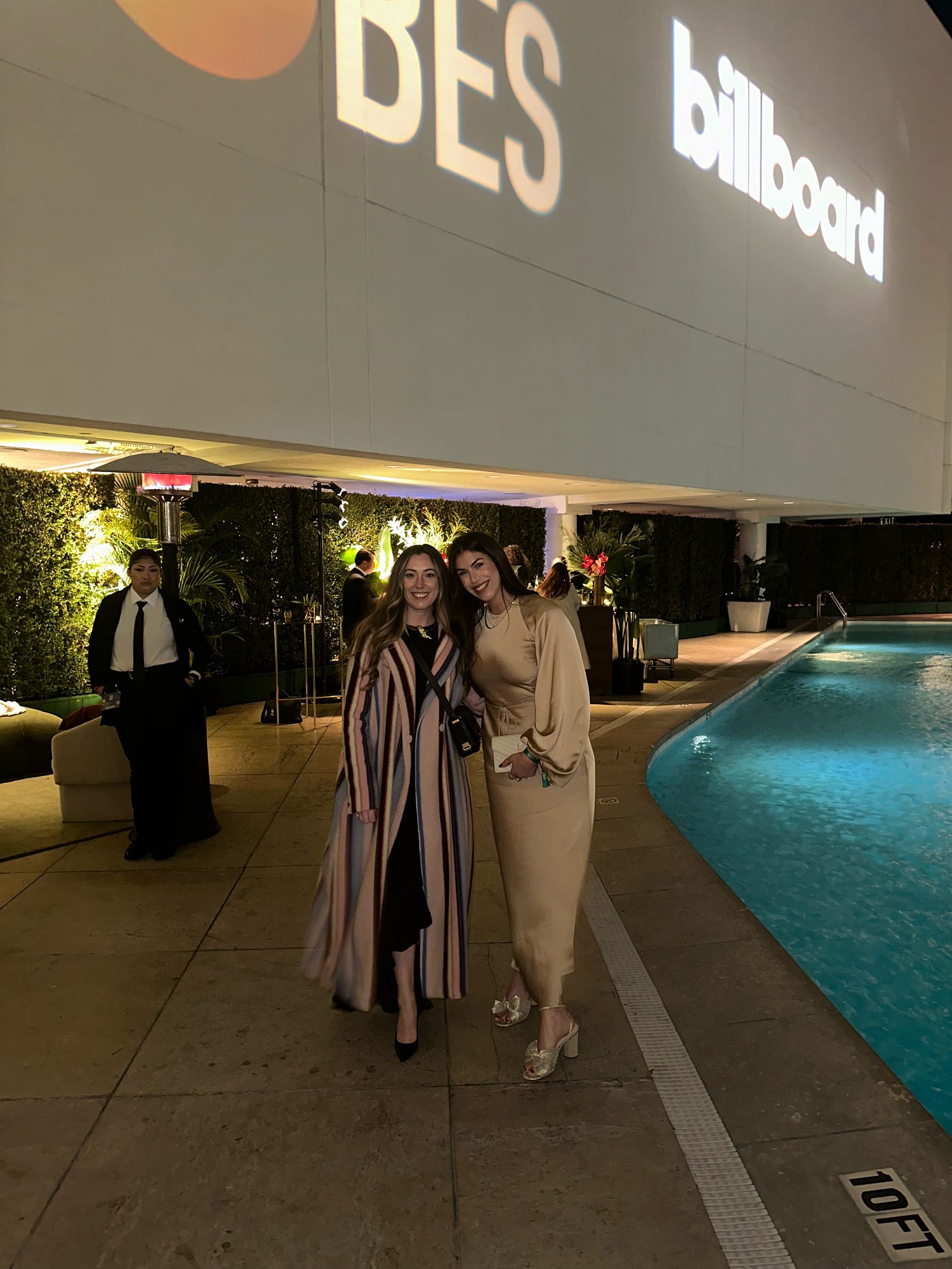When Skye and I moved from Maine to California in 2008, we knew three people: two schoolteachers and an eccentric great-uncle on her father’s side, a retired firefighter with hair plugs and the beef jerky skin of a lifelong sun worshipper. Don lived in a condo across the alley from Pancho’s in Manhattan Beach, and there he treated Skye and me to our first LA dining experience.

All three of our California connections were hospitable and kind, but they weren’t the sort of high-powered industry folks Skye would need to launch a career in LA.
Luckily, Skye was a scrappy kid, and she figured out sooner than I did that she would have to forge her own connections during her precious years at USC.
Sometime in 2010, during her sophomore year, she broke it to me when she was home for a visit. “Mom,” she said, “I know we’re counting on my earnings from work-study to pay for school, but I really need to do an internship this semester.”
“That’s okay,” I answered. “Can’t you get a paid one?”
“I looked. None of the paid ones are good. And I’m going to need to buy a car to get to work.” She had a steely look in her eye that told me that this was no frivolous request.
Three years earlier, Skye had been a high school student who dreamed of going to college in California, a state she had visited three times in real life but had experienced far more often through “reality” TV shows like Laguna Beach.
USC turned out to be an exercise in near constant deprivation for Skye, largely because the student population did, in some ways, mirror the world of privilege she had seen on Laguna Beach. My NorCal friends called it “University of Spoiled Children,” and the stereotype held a grain of truth. Skye had classmates who wore Gucci and drove Mercedes. They went to fancy restaurants, ordered lavish meals, and bottomless drinks, and then gaily agreed to split the bill, oblivious to the hardship it would be for my kid, who ordered the cheapest happy hour app and spent the evening worrying about the check.
The greatest privilege her peers had, though, wasn’t mountains of spending money. It was cultural capital. Not the kind that helped them know a Matisse from a Modigliani - Skye had as much of that as any of them. They had connections who could pick their resumes out of the pile and waft them under the noses of the right people and mentors who could guide them to dream careers. They also had family resources to survive postgrad unpaid internships in expensive coastal cities, unsubsidized by the financial aid and scholarships that made a private university education possible for our family.
After a couple of years teaching at a Silicon Valley independent school, where we were preparing similarly privileged children for USC and other elite institutions, I knew Skye was right - she would have to behave like one of those rich kids, even though she wasn’t one. My prep school students were already collecting internships, summer camps for gifted youth, and service projects that would make them more attractive to colleges and, later, employers. Their older siblings would be her competitors in the job market.
There wasn’t much wiggle room in my budget, but I did have a windfall we received when my Grandma died at 102. Because my dad had predeceased her, my sisters and I inherited his third of her modest estate (one-ninth each), including about a dozen gold coins my own eccentric Uncle Owen had been wise enough to purchase. I pulled out the last eight of those coins, which I had been cashing out a couple at a time for tuition, and sold them for about $1000 apiece.
A couple of weeks later, I flew down to LA and took Skye car shopping. After exhausting the local possibilities on Craigslist, we decided that Pasadena would be a likely place to look, so we rented a Zip car and tried our luck. First we visited a gruff old mechanic named Jeff, who had positive reviews by Click and Clack, the Tappet Brothers, and asked him if he would be willing to inspect up to three used cars for safety and reliability for $90. He agreed, cracked a smile, and I could tell I had an ally. Then we drove across town to a used car lot that also got decent reviews, and made our case to our salesman, Bob, a rangy gentleman with a mane of white hair and a massive set of ivory teeth.
I told him, “My daughter is going to have to drive through Los Angeles traffic, and she needs a safe, reliable car. I have $8000 to spend, and I don’t have money for repairs or maintenance, so it’s got to be a good one.
Bob flashed that piano key smile, said, “Of course we’ll keep your little girl safe. I’m sure we’ve got the perfect car for her,” and proceeded to show us everything he had, including a red Miata, a blue Escape, and a silver Nissan. With each new car, Bob described a fresh vision for Skye’s fabulous LA life. “I can just see you tooling down the PCH in your Miata, hair blowing in the California breeze!” or, “I can see all your friends piling into this sweet Escape for an off-road adventure.”
Then Jeff would put the car on his lift and shake his head. The Nissan was leaking oil everywhere and was a mess, the Ford Escape was also leaking oil and had bad struts, and the Miata was just a disaster.
There were more promising contenders on the lot - Honda Civics and Toyota Corollas with lower miles - but they were all north of $10,000, and I just didn’t have the money.
Finally, near closing time, our salesman sat us down in his paneled office and gave us the hard talk. “Ladies, there’s nothing left. I have shown you everything.”
I said, “Yes, but Skye needs a dependable car.”
Bob’s lips closed over his teeth in a dark scowl, and our charming friend started to cuss with vigor and creativity he hadn’t previously shown. Finally, he glared at us and said, “I can’t believe I’m doing this. There’s a green Infiniti parked around the corner. Take it to your mechanic and see what he says.” He threw us what was obviously a personal set of keys.
Skye turned the corner of the dealership, and her eyes lit up with love. The salesman’s car was a frosty avocado green 2003 Infiniti i-35 with caramel leather seats, a burl maple dashboard, a Tom Petty CD on the stereo, and genuine Joe Biden Ray Bans in the cupholder. It had 88,000 miles on the odometer (the first car we had seen with just five digits), and Bob had recently dumped thousands of dollars into new tires, brakes, struts - the works. It was a Baby Boomer’s dream car, and (who knew?!) also Skye’s dream. Skye put on the shades, cranked the music up, and cruised over to Jeff, who proclaimed, "I'm going to have to charge you an extra $20 to lie about there being something wrong with this car. It's perfect."
Skye drove away with her new wheels for $8000, well below wholesale value. I don’t know how Bob got home, though my guess is the Miata. Skye also got to keep the Tom Petty CD and the shades, mostly because I think Bob was too upset to bother cleaning out his car.
Skye had good luck with her two internships during her time at USC. The first one involved writing for an online celebrity website, and she racked up some impressive press clips, as well as experience in the brand new world of digital marketing. She also met a mentor there, a woman not much older than Skye who liked her work and took an interest in her.
A couple years later, when Skye was looking for a job, her situation seemed tenuous. We were able to keep her in her apartment, largely because she had graduated a semester early (With honors. Yes, I’m bragging.) and saved a whole semester’s worth of expenses. But her runway was short, and she was seriously considering taking a job as a clerk at Banana Republic. At least, we figured, she would be able to buy clothes for her next job.
Then she received a call from her mentor. She was working at a new gaming startup, and they needed somebody. Skye got the job and followed her mentor to the new Beats headphone company a couple years later. Along the way, Skye met new mentors who helped her grow. Then Beats got acquired by Apple, and the rest is history.
Skye certainly benefited from privilege. She was a second generation lucky kid. I had mentors and breaks of my own, which allowed me to graduate from Oberlin and teach at the affluent high school she attended. She had a handful of lucky gold coins. She had beauty, white privilege, a home full of books, caring parents, and healthy food. She also had the kindness of strangers, including Jeff and Bob, who said, “I’m a grandpa. I can’t let this girl leave in an unsafe car.”
A couple weeks ago, Skye called me with exciting news: she was invited to a Golden Globes afterparty at Billboard. Nick wasn’t available, so Skye invited a young member of her team, a huge music fan, whose answer to the invitation was a squeal of delight and, “Oh my god! What are we going to wear? I’m going to get a blow out!!”
I’m proud of Skye for lots of reasons, but one of the biggest is the way she supports the young people on on her team. Over the years, I have seen her give chances to folks without access to the privilege pipeline, and I’ve seen her work with young mentees who needed help cultivating the skills to succeed. I’ve also seen her share the perks that come with her position, from party invitations and concert tickets to high end swag. She hasn’t forgotten what it feels like to be the one without a golden ticket.
There’s a lot wrong with this story. Companies shouldn’t be allowed to profit from the labor of unpaid college students and new graduates. Housing should be a right, not a privilege for the wealthy. As challenging as Skye’s situation was, at least she never had to go hungry or sleep in her car, as so many college students do. Elite private universities shouldn’t be gatekeepers for opportunity, and stories of working class kids making it through the gates shouldn’t be the stuff of legend.
But within that flawed structure are a lot of kind humans helping each other along. I’m glad my kid is one of them.







She is an inspiration!
Loved this. You are a wonderful writer...keep going!
~ Marilyn Madden